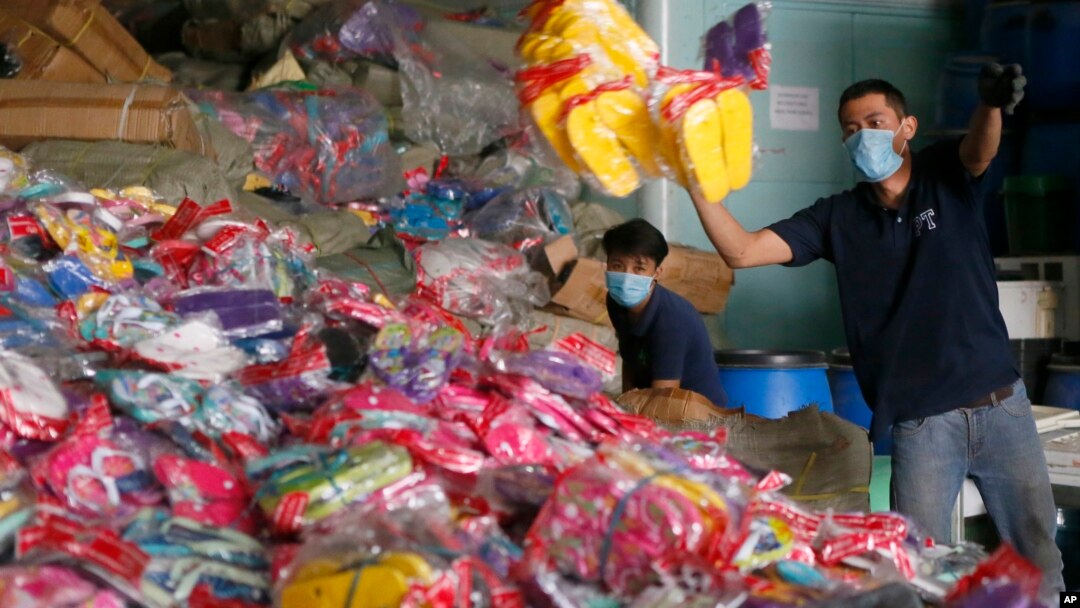A study by the Organization for Economic Cooperation and Development says global trade in counterfeit goods is rising, and proceeds from this illegal activity may be larger than the take from illegal drugs, and may help fund terror networks and criminal gangs.
Monday's OECD report shows the trade in fake and pirated goods has grown to nearly half a trillion dollars, or about 2.5 percent of global imports.
OECD Deputy Secretary-General Doug Frantz says counterfeit goods are the largest contributor to the world's undergound economy, and helped fund the Charlie Hebdo terror attacks in Paris.
Frantz also says counterfeiting produces fake products that endanger lives, including "auto parts that fail, pharmaceuticals that make people sick, toys that harm children, baby formula that provides no nourishment and medical instruments that deliver false readings."
News accounts describe fake auto brake parts that look right, but preform poorly or don't fit the car. Other stories describe fake contraceptives with authentic-looking packaging that fail to prevent pregnancy.
Products from the United States, Italy, France, Japan, and Germany are the ones most often copied. The study's authors say China is by far the largest source of faked goods.



